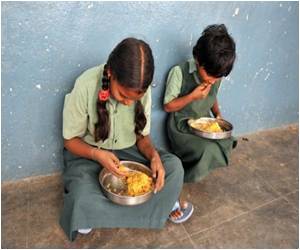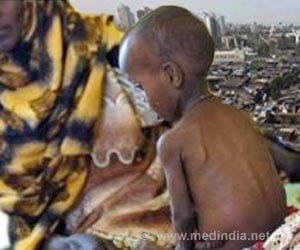At the India launch of the Lancet 2013 series on maternal and child nutrition, experts noted that India needs to bring the malnutrition debate on the political centre-stage.

Reddy advocated nutrition-specific interventions, and community-led initiatives.
Purnima Menon, senior research fellow at the Washington-based International Food Policy Research Institute, pointed to the huge lack of research on nutrition in India, and the problem with data-gathering on the subject: "The last family health survey was in 2005. There is a very big research lacuna in India," she said.
The new Lancet series says that 3.1 million children younger than five years die every year across the world from under-nutrition, which is a staggering 45 percent of total child deaths in 2011.
Most children with stunted growth (69 million) are in south central Asia.
The series outlines ten key nutrition-specific interventions that, if scaled up to 90 percent in 34 high nutrition-burden countries, could reduce the global prevalence of stunting and wasting by 20 percent and 60 percent respectively.
Advertisement
"The call for engaging with the "private sector" and unregulated marketing of commercial foods for preventing malnutrition in children raises serious concerns. The inherent conflict of interest will ensure that commercial considerations override sustainable nutritional goals," said a joint statement issued by leading nutrition experts and paediatricians.
Advertisement










